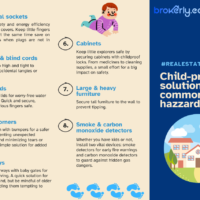During periods of inflation, the general trend is for real estate prices to increase. Inflation refers to the sustained rise in the general price level of goods and services in an economy over time. There are several factors that contribute to the increase in real estate prices during inflation:
Asset Value Preservation: Real estate is often seen as a tangible asset that can act as a hedge against inflation. As the prices of goods and services rise, the value of real estate tends to increase as well. People may invest in real estate to preserve their wealth and protect it from the eroding effects of inflation.
Increased Demand: Inflation can lead to an increase in demand for real estate. Investors and individuals may seek to invest in tangible assets like real estate to protect themselves from the loss of purchasing power caused by inflation. This increased demand can drive up prices in the real estate market.
Limited Supply: The supply of real estate is relatively fixed in the short term, especially in well-established areas where land is scarce. As demand increases, but the supply remains limited, it puts upward pressure on prices. This supply-demand imbalance can be particularly pronounced during inflationary periods, leading to further price increases.
Cost of Construction: Inflation often affects the cost of construction materials and labor. When these costs rise, developers and builders may pass on the increased expenses to homebuyers or renters, driving up the prices of newly constructed properties. This, in turn, can impact the overall real estate market and contribute to higher prices.
However, there can be situations when real estate prices decline during times of high inflation. While inflation generally tends to put upward pressure on real estate prices, it is not the sole determinant of market behavior. Several factors can interact to create circumstances where real estate prices may decrease or grow at a slower pace during periods of high inflation. Here are some possible scenarios:
Economic Recession: High inflation combined with an economic recession can lead to a decrease in real estate prices. During a recession, there may be a decline in demand for real estate due to reduced consumer purchasing power, tighter lending conditions, rising unemployment rates, and general economic uncertainty. These factors can outweigh the inflationary pressures and result in a downward trend in real estate prices.
Central Bank Policies: Central banks often implement monetary policies to control inflation. In some cases, these policies may include raising interest rates to curb inflationary pressures. Higher interest rates can make borrowing more expensive, reducing the affordability of real estate purchases. As a result, demand for real estate may decrease, leading to a decline in prices.
Oversupply: In certain situations, real estate markets can experience an oversupply of properties. If the supply of real estate exceeds the demand, it can lead to a decrease in prices, even during a period of high inflation. Oversupply can occur due to excessive construction or a decline in population growth, both of which can offset the inflationary effects.
Market Sentiment: Investor sentiment and market psychology can also influence real estate prices. During times of high inflation, if investors anticipate a potential slowdown or correction in the real estate market, they may decide to sell their properties, leading to a decline in prices. Speculative behavior and a change in market sentiment can override the inflationary pressures.
It’s important to remember that real estate markets are influenced by a combination of factors, and their behavior can vary across regions and property types. While inflation is generally associated with rising real estate prices, it is not the sole determinant, and other economic and market-specific factors can have a significant impact on price movements.
If you liked this article you can find this article useful too “What would be the best long term real estate investing strategy for Tallinn, Estonia considering the aging of the population ?”
or this article from October 2022 Experts: Fall in real estate prices inevitable





